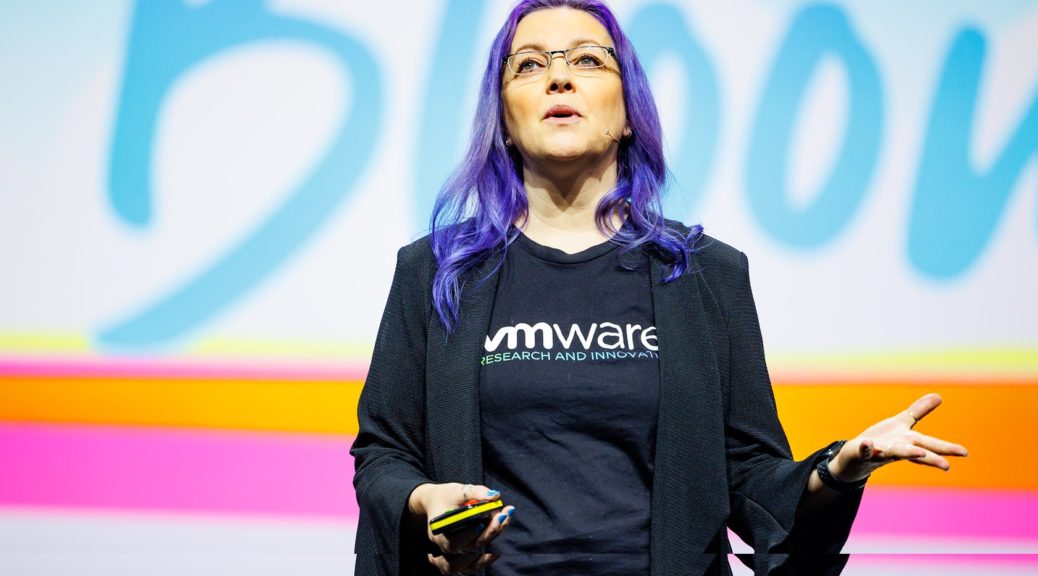A lot of the work that we do in open source projects is based on the relationships we have with other people. By having key employees attend conferences focused on their open source work, those employees can build deeper lasting relationships with others that will benefit your organization and your employees. These existing relationships make it easier to collaborate with others, and it’s sometimes easier to work through really difficult, big issues when you have a group of people together at a conference. It’s also easier to communicate with someone later online if you’ve met them in person. I have deep and lasting connections with people that I’ve met at events, which often allows me to make introductions to help a colleague learn something new or solve some tricky issue. Conference talks also showcase the work that employees are doing within your organization both for potential customers and when recruiting new employees either now or in the future.
However, getting talks accepted at important conferences doesn’t always just happen organically, and this is where your Open Source Program Office (OSPO) can play a strategic role in getting the right people speaking at the right conferences. I’ve seen too many examples where no employees get talks accepted at conferences that are important for the organization, and other times where you have one individual spending too much time at conferences while other people aren’t getting the same opportunities to attend. By getting organized and taking a strategic approach to conferences, your OSPO can help to get your employees speaking at the conferences with the biggest benefit, both for those individuals and for the organization as a whole.
I ran a process for doing this when I worked at Puppet, and it helped us get more talks accepted at the conferences where we wanted to have a presence. This was accomplished with input from product teams, engineering, marketing, events, and other key stakeholders. Here are the steps you can use to replicate that process:
- Select strategic conferences based on which conferences are most important for your organization.
- Identify topics and speakers for each conference in areas that are important to the organization and with speakers who would benefit from attending that specific conference. Imposter syndrome can play a role in this step with some people thinking that only the world’s leading expert can give a talk, so it might take some encouragement to help them understand that they just need to know some things that a person new to the topic would need to know. I have an entire video about imposter syndrome for giving conference talks.
- Create timelines and reminders to make sure that talk proposals are prepared in time for your review process and then to meet conference deadlines. I’ll admit that this part of the process required a fair bit of following up and reminding people about the deadlines.
- Review and provide feedback on proposals to help employees craft talk proposals (along with appropriate bios) that are more likely to be accepted. Writing excellent proposals requires some specialized skills, so you should recruit a few people who have sat on program committees to help with these reviews. This review process should also be open to anyone who wants to submit a talk, not just the people you’ve identified, because there will be additional topics and conferences that are important for some individuals that you didn’t anticipate.
If you don’t feel like you can run this full process right now, at a minimum, encourage submissions to your most important conference and get people to review those proposals. We did this one year when I worked at Pivotal by encouraging people to post their KubeCon talk proposals into a Slack channel where several of us with talk selection experience reviewed those proposals, and we went from having almost no talks at KubeCon to having about a dozen talks across a wide variety of topics. A lot of people are terrible at writing talk proposals, and a little bit of direction from someone with the right expertise can make the difference between acceptance and rejection.
However, there are a few gotchas to watch out for that are likely to get a talk rejected, regardless of the topic:
- The person speaking needs to submit the talk proposal. Never submit a talk on behalf of someone else, since for many events, this is an automatic rejection, even when they give you the option to do it.
- Do not submit anything that looks even slightly like a product pitch. Audiences don’t like to be pitched to, so conferences decline these for a reason.
- The bio is as important as the talk abstract, and it should be written to highlight why the speaker is the right person for this particular talk. It should not be something generic that is thrown together as an afterthought.
I hope this helps your OSPO get the right people giving talks at the conferences that are the most important for your employees and your organization! If you want feedback or help with this process or with your open source strategy, I’m available for consulting engagements.
Additional Resources:
- A conference talk with tips for getting talk proposals accepted and getting over imposter syndrome (video)
- My short blog post series on this topic: Benefits and Barriers and Steps to Success
- Crafting the Perfect Proposal
- Becoming a Conference Speaker

 I don’t play werewolf just because I love it. I play it because it builds community.
I don’t play werewolf just because I love it. I play it because it builds community.